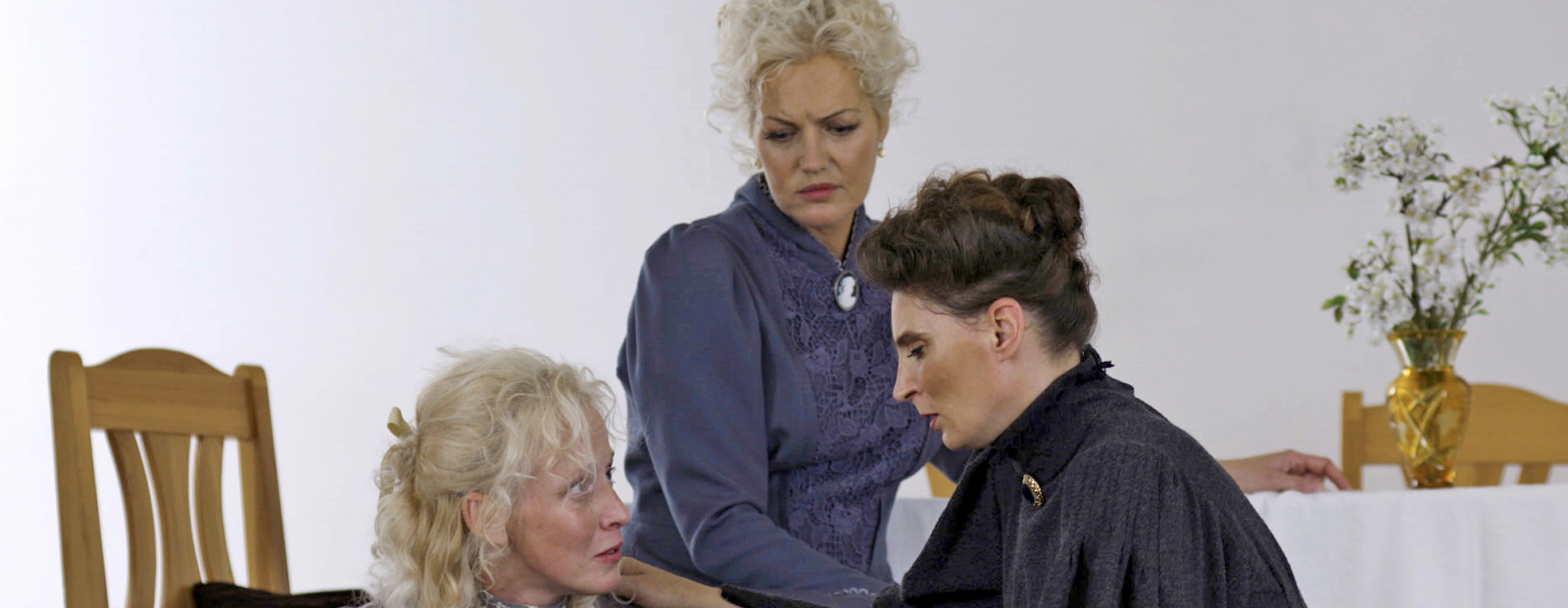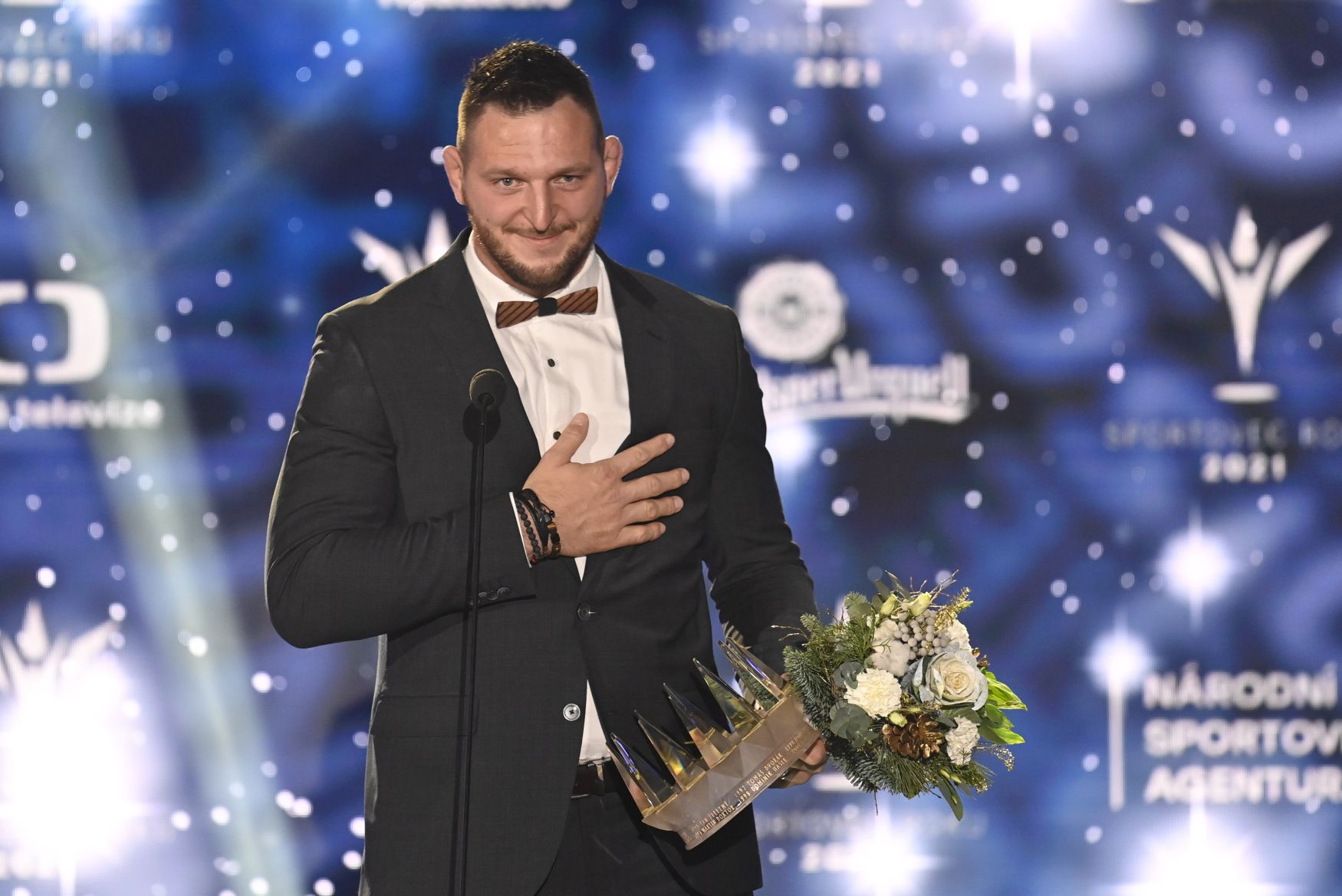The documentary film festival founded by director Vitalija Manska, persistently and imaginatively fighting the difficulties caused by the pandemic ArtDocFest/Riga for the second time, however, it reaches viewers, and such a compact concentrate of good films is beneficial for the whole documentary cinema – if we believe that Latvian cinema viewers have forgotten or not even made a habit of watching documentaries in the cinema, with such a festival model it is possible to develop and strengthen. After all, the selection of the festival program can be seen as a certain guarantee of safety – there are no random films here, quality is the most important criterion.
From this point of view, the presence of three Latvian films in the festival program, as well as in other strategically important positions – at the opening and closing of the festival – is a good indicator of the evaluation of these works in the international context.
Father, mother and country
The opening film of the festival is the third documentary by director Ieva Ozoliņa My mother country March 3 (next movie screening in the cinema Splendid Palace after the festival – March 11). It should be reminded that the director Ieva Ozoliņa has shaken the audience to some extent with both previous films, moreover, the names of all three films form a memorable drawing and interplay. In the first film that received The Great Kristaps as the best debut – almost in a detective thriller My father is a banker (2015) – the director herself was the heroine and driving force of the film, taking an important place in the events of the plot and moving them energetically. After the second movie Given size – my mother (2018) The protagonist of the film, Raitis, complained about the director’s desire to vigorously stimulate and influence events in the public space for a long time.
In this sense, the new film My mother country (2022) seems to be radically different – the director’s presence is almost imperceptible, this time investigating and directing the film’s own heroine Una. However, the severity of the problem does not lag behind, on the contrary – there are four – and even more – broken lives that began together but were later thrown into the world. Significantly, the theme of adoption in the film is supposed to be on two levels – an individual’s relationship with the law and bureaucracy might be even clearer and more absurd if the protagonist of the film had a more structured mind that tends to argue and prove, but the emotional level is undoubtedly shocking. , the moment Una finds out that she had four sisters as a child, even though she only remembers one.
The rain doesn’t end there
At the festival ArtDocFest/Riga Finally, one minority co-production will arrive in Riga, which has been triumphantly following important documentary film festivals throughout Europe since the end of 2020 – the new Ukrainian director Alina Gorlov in collaboration with the Latvian studio Avantis Promo and producers Ilona Bičevska made the film This rain will never end (previously described in Latvia under the name Between two wars; session on 5 March). Interestingly, this black-and-white and rather long film does not have any conspicuous external features that would predict such popularity in the festival environment and such a significant influx of awards – just an exact hit in the brutal turbulence of the era. This work allows us to see the great connections in the fate of one family.
The protagonist of the film with complex pedigrees – Andrei Suleiman, a son of a Ukrainian and a Kurd – lived in Syria until he was a teenager, then the family fled the war and moved to their mother’s relatives in Ukraine, but due to an unfortunate coincidence , and he himself now, as a Red Cross worker, travels to both homelands, helping people, but not actively intervening, just watching the flow of time. The subtle nuances of the film’s title must also be appreciated – there is no eye-catching image in the rain film, but the black-and-white and slow flow of events creates just such a feeling – an endless and depressing fog up to the horizon, and nowhere in the sun.
Sisters in Ilguciems
In terms of events, the second full-length documentary by actress and director Elita Kļaviņa is much more attractive. Ilguciems sistersselected as ArtDocFest/Riga closing event (premiere on March 8), although the use of the word “attractive” in the context of this film seems even blasphemous. The media will probably be happy about the fact that during the making of the film Elita Kļaviņa has staged Anton Chekhov’s play in Ilguciems Women’s Prison. Three sisters choosing three prisoners for the title role and including several current and former actors of the New Riga Theater in the rest of the ensemble. It looks thrilling, but the seriousness of the director’s attitude is proved by the fact that in the context of the film, the show is by no means a central event, it does not end there. For these “three sisters”, as for their other “sisters”, who are united by years of imprisonment, the production is more important because of the process than the result, and the plays sometimes shed liberating tears and , at the end of the light tunnel.
With gentle touches, the film also reveals the most tragic edge in this world of nursing – the idea of the reasons why they are here – and it is hardly a coincidence that everyone is lying in the background like a black cloud. The horrific impasse from which they escaped in prison is becoming more and more apparent, as the other of the two options may have been a violent death for oneself or the children. “You save many,” says one “sister” to another, and her heart freezes, wondering what the world is like, where the best way out is prison.
ArtDocFest/Riga
In the cinema Splendid Palace 3.–8.III
ww.splendidpalace.lv
–


